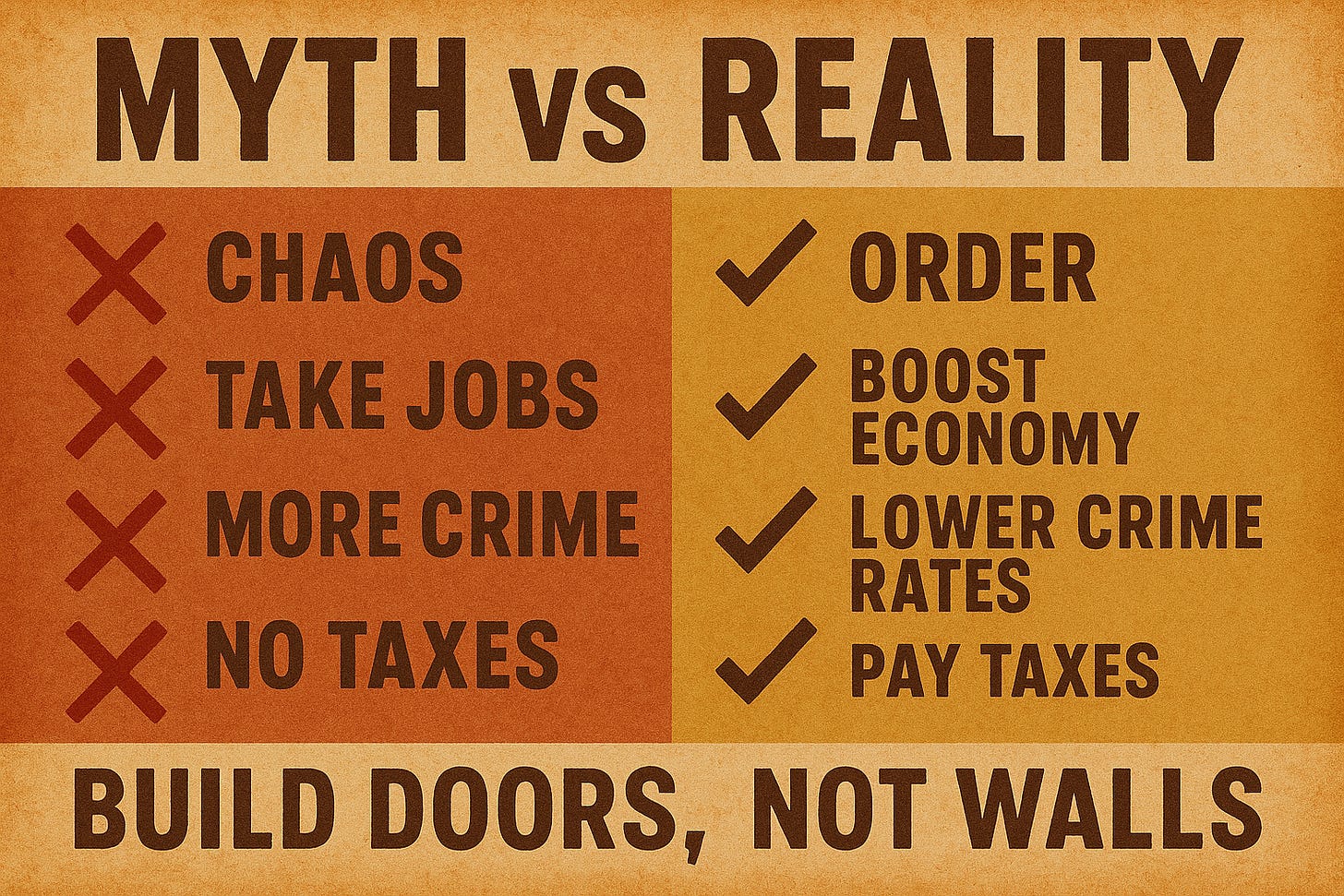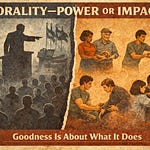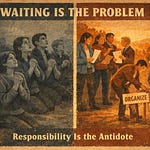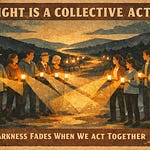If your theology needs a wall to feel safe, it’s not protecting faith, it’s protecting fear. That’s our starting point. And yes, I know: walls feel simple, like buying the heavy-duty lock for your front door and calling it a security strategy. But we’re grown-ups; we can hold two ideas at once: we all want safety, and we also know fear shrinks our circle of care until there’s hardly anyone left inside—sometimes not even us.
Here’s the thesis in plain language: closed-borders thinking is un-Christian and un-humanist because it shrinks the circle of care. It turns people into categories and it turns mercy into membership. The practical alternative is a people-first policy. Not slogans, not vibes. A people-first policy means starting from a place of respect and dignity (humane processing, families kept together, language access). It includes due process (decisions driven by evidence, not profiling) and shared prosperity (legal pathways and fair labor rules so that work lifts communities instead of exploiting them). That’s morality you can measure.
As for the tone of our conversation in the episode: I’ve tried to be direct, kind, and myth-busting. I trade social media memes for facts. And I trade fear for steps that actually work at the legal and policy level.
You don’t have to agree with me on every point; I’m asking you to keep your values visible while we look at the real world together. Because people aren’t problems to be managed; they’re neighbors to be included under the same laws and protections. If your faith tradition says “welcome the stranger,” we’ll talk about how that looks Monday at 10 a.m., not just Sunday at 10 a.m. If you’re a secular humanist, we’ll ground it in dignity, fairness, and outcomes that reduce harm.
Will you give me 30 minutes of your time? It’s worth it.












